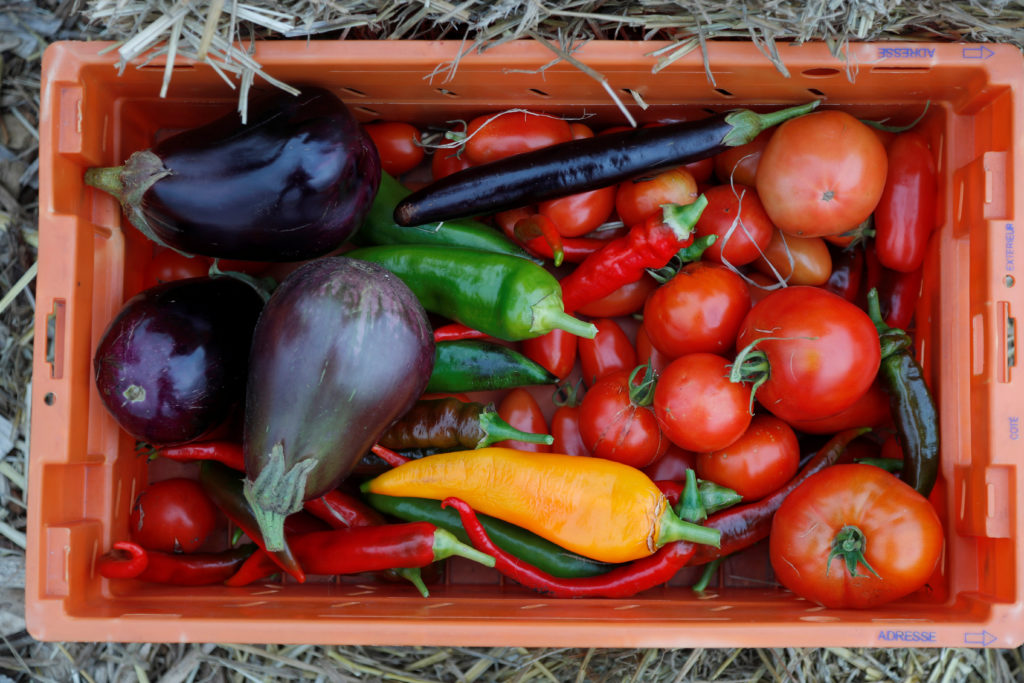
Counting calories obsessively is not the key to trimming your waistline, according to a new study published Tuesday in JAMA. The study, from Stanford University researchers, found that paying attention to what you eat is more important than focusing on how much.
Researchers monitored the diets of more than 600 overweight adults. Even though the subjects did not focus on cutting calories, they lost an average of about 12 pounds over the course of a year. The weight changes ranged from a reduction of 60 pounds to a gain of 15.
The study randomly assigned participants to reduce fat or carbohydrate intake. Subjects were not provided with food. Rather, they sat through 22 health education classes, where they learned how to shop, cook and dine nutritiously. They were also encouraged to be physically active.
The results, based on self-reports from the study subjects, showed that both the low-carb and low-fat groups reduced their daily calorie intake by an average of about 500 calories. Being assigned to the low-carb or low-fat group didn’t affect the results.
Not All Calories Are the Same
What did matter across both groups was the type of carbohydrates or fats participants consumed: Those who ate the fewest processed foods, sugary drinks and unhealthy fats while eating the most vegetables lost the most weight.
“If you reduce starch and sugar and you increase minimally processed healthful foods like vegetables, weight will go down naturally,” said Dariush Mozaffarian, a cardiologist and nutrition expert at Tufts University who is not connected to the study. “About 10 pounds a year, which is pretty substantial.”
The results add to a growing body of research calling fad diets into question. Scientists have yet to corroborate any alleged silver bullet for losing weight, and studies have found negligible differences in reducing capabilities between low-carb and low-fat diets.
Mozaffarian specifically questions the mantra that all carbs are bad.
“The carbs that we should be avoiding are those that come in high doses and are digested very quickly, what you might call fast carbs,” he says. He recommends tossing out refined flours, potatoes and sugars and stocking up on fruits, beans and minimally processed whole grains.
Precision Medicine Takes a Hit
At the beginning of the study, the participants underwent analysis to identify genetic variations that are linked to how the body processes fats or carbohydrates, which the researchers thought would make each individual more likely to lose weight on a low-fat or low-carb diet. Previous research had suggested that genes could interact with different types of diets to influence weight loss. The participants’ insulin levels were also taken.
But neither their genetic makeup nor insulin resistance mattered in how successful the participants were in losing weight, the study found. These results suggest that “precision medicine is not as important as eating mindfully [and] getting rid of packaged, processed food,” said lead author Christopher Gardner. To achieve the former, he recommends avoiding screens while dining, shopping at farmers markets and sitting down for meals with friends and family.
Other Experts Weigh In
The study was well-conducted, says Dr. David Ludwig, a Boston Children’s Hospital obesity researcher. But because participants were not provided with specific foods and self-reported their choices, he says, it wasn’t rigorous enough to disprove the idea that certain genes and insulin levels may affect which types of diets lead to weight loss.
Dr. Frank Hu, nutrition chief at Harvard’s School of Public Health who has called precision nutrition a promising approach, says the study wasn’t a comprehensive test of all gene variations that might affect individual responses to weight loss diets.
“In any weight loss diets, adherence to the diet and the overall quality of the diet are probably more important than any other factors,” Hu says.
Still Hunting for the Silver Bullet
Stanford researchers plan to continue combing through the data to see if other biological factors, such as those linked to individual microbiomes or to epigenetics, for example, impacted the results. Gardener has a hunch that one key factor is satiety: Some people might feel full after eating a bowl of steel cut oats for breakfast, for instance, while others still feel hungry. Meanwhile, the same people unsatiated by oatmeal might do better with eggs and an avocado.
“I think the next level of personalization is really thinking about which good carbs and which good fat foods are more satiating for some people than others,” Gardner says.
Associated Press contributed to this report.
This report was produced by KQED’s Science. You can view the original report on its website.
ncG1vNJzZmivp6x7sa7SZ6arn1%2Bjsri%2Fx6isq2eYmq6twMdoq6hlnKTApnnWnqCgoKRis7Cv1KxkqKZdrLWiwIyypq5llZbBbrrOrWShp6diuravx2aqra2Urg%3D%3D